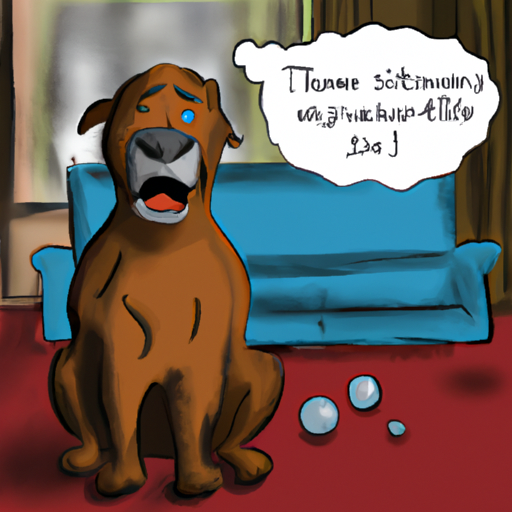As a caregiver to an adorable pet, you might have noticed your dog exhibiting peculiar behaviors whenever you’re about to leave the house. This could be an indication of separation anxiety, a common affliction in dogs. This article will provide a comprehensive understanding of separation anxiety in dogs, its symptoms, and how you can help your furry friend.
Understanding Separation Anxiety in Dogs
Dog separation anxiety is a condition characterized by the display of distress and behavior problems when a dog is left alone. It’s important to note that occasional slight anxiety is normal for dogs, but severe anxiety can lead to serious behavioral and health issues.
Common Symptoms of Separation Anxiety
Dogs can’t express their feelings in words, so it’s up to you to recognize the signs. Common symptoms of separation anxiety include:
- Destructive behavior: Dogs with separation anxiety often chew on furniture or personal items and may even cause damage to doors and windows in an attempt to escape.
- Excessive barking or howling: A dog might start barking or howling when left alone or separated from their caregivers.
- Pacing: Some dogs walk or trot along a specific path in a fixed pattern when left alone.
- Compulsive behavior: Dogs may show repetitive or compulsive behaviors like self-licking or -biting.
- Urination and defecation: Even house-trained dogs might urinate or defecate inside when they are left alone.
- Excessive salivation, panting, or drooling: These are all signs of extreme stress and anxiety.
Causes of Separation Anxiety
Different factors can trigger separation anxiety in dogs, including:
- Change of guardian or family
- Change in schedule
- Change in residence
- Change in household membership
- Sudden absence of a family member
How to Diagnose Separation Anxiety
Diagnosis of separation anxiety should be made by a professional. A veterinarian or a certified applied animal behaviorist can provide a proper diagnosis based on the symptom history and behavioral analysis of the dog.
Treatment and Management of Separation Anxiety
Separation anxiety can be managed and treated through various methods. Here are some steps you might consider:
- Counter-conditioning: This involves changing your dog’s response to the conditions that trigger its anxiety. For instance, you can train your dog to associate your departure with good things like delicious treats.
- Desensitization: This involves gradually getting your dog accustomed to being alone. Start with short separations and gradually increase the length of time you are away.
- Medication: In severe cases, medication can be an effective part of treatment. Always consult a veterinary professional before administering any medication.
| Treatment | Description |
|---|---|
| Counter-conditioning | Changes the dog’s response to anxiety triggers |
| Desensitization | Gradually accustoms the dog to being alone |
| Medication | Used in severe cases under professional guidance |
Preventing Separation Anxiety
Prevention is better than cure. Here are some preventive measures:
- Regular exercise helps to relieve anxiety.
- Maintain a calm environment at home.
- Avoid making a big deal out of arrivals and departures.
- Leave your dog with a piece of clothing that smells like you.
Frequently Asked Questions
Q. Can separation anxiety cause physical harm to my dog?
A. Yes, in severe cases, a dog trying to escape can hurt themselves. Also, anxiety can lead to decreased appetite and neglect of personal hygiene.
Q. Can I leave my dog alone all day?
A. It’s not recommended to leave your dog alone for more than 6 hours a day. If you must, consider a dog daycare or a dog sitter.
Q. Can puppies have separation anxiety?
A. Yes, puppies can have separation anxiety, especially if they are new to the family and haven’t yet adjusted to the environment.
Q. Will training help with separation anxiety?
A. Training can be beneficial, especially techniques like counter-conditioning and desensitization.
Q. Is medication necessary for treating separation anxiety?
A. Medication is usually a last resort and should be considered only under the guidance of a veterinary professional.
As a caregiver, it’s important to understand separation anxiety in dogs to ensure their mental and physical well-being. With patience and professional guidance, you can help your furry friend navigate through this challenging condition.



